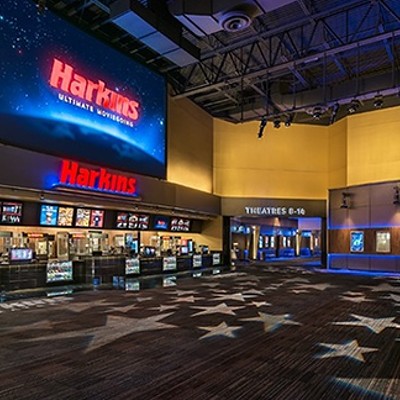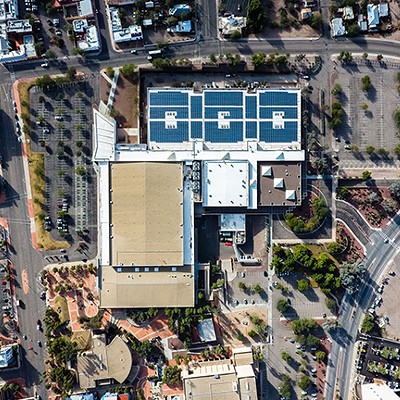Today, Arizonans look at our remaining open spaces with the same naïveté. When voters turned down Proposition 106, which would have preserved 700,000 acres of Arizona's state trust lands, we took significant steps to ensure that the next 30 years will look a lot like the last 30: a thriving economy based on the wholesale liquidation of land, water and wildlife. The downfall of Prop 106 is a slap in the face that asks us: What kind of a future are we creating?
Here's the view from my downtown window: The saguaros are fading into the distance behind a veil of red-tile roofs and construction dust.
Some 150,000 acres are slated for high-density development in greater Tucson in the next 10 years. Meanwhile, out on the ever-more-distant urban fringe, folks are scrambling to grab a little of what's left.
Many a parcel has been sold at a premium whose listing boasts "borders state trust land," conjuring up images of splendid nature, preserved in perpetuity. But guess what? Arizona voters just put another nail in the coffin of that fantasy scenario with the end of Prop 106.
Think you're OK because your property borders national forest or BLM land? Bush and Co. have designs to "privatize" hundreds of thousands of acres of these lands, too. Here's the truth: 10 years from now, your 10-acre "slice-of-heaven" ranchette in Dragoon (or Sonoita, Arivaca, Oracle--insert your favorite rural area here) will be surrounded at best by a patchwork of manufactured homes, dogs, ATVs, fences, porch lights and dirt roads; at worst by stoplights, sidewalks and cookie-cutter homes. Meanwhile, those lands with some form of protection will continue to fill up with mines (goodbye "scenic Santa Ritas"), cyclists, hikers, dog-walkers, hunters, cars, campers, Border Patrol agents and foot-traveling immigrants.
What can we do? Prescott College President Dan Garvey put it best during his recent visit to Tucson: Find a luxury cabin on the Titanic (those big parcels with wilderness boundaries are still out there for you squillionaires), or roll up our sleeves and get involved. Here are some ideas for the latter:
· Vote for conservation: As the Democrats learned, there's always next time. Just do it.
· Just say no: Cochise County voters just passed a ballot proposition to reject a rezoning for a mega-development outside of Benson. If they can do it, so can we.
· Support conservation groups: These are the folks getting the measures on the ballot, triaging our wildlife populations and fighting our misguided leadership.
· Quit trying to run away: See the projected future for your "rural slice of heaven" above.
· Invest in the city: The coolest development going on in Tucson is in Tucson. Eco-industrial lofts, multi-use neighborhoods and retooled midtown ranches are in; foothills McMansions and hour-long commutes are out.
· Disinvest in the real estate behemoths: Our "nest egg" investments in real estate trusts and companies like Pulte Homes are fouling the nest. Our cries for quick returns ensure that nature loses.
· Invest in the behemoths, and speak up: If you've got shares in these corporate monsters, buy some more and let 'em know that we want infill, functional wildlife corridors and green building--and we want it now!
· Get out there: Bring your kids up to Mount Lemmon for the winter's first snow, and you'll remember just what it is that makes Arizona worth living in.
· Make your voice heard: There's a whole new batch of Democrats coming into office just wondering what the heck they're supposed to stand for. Tell them!
· Dare to dream: Visualize the world you'd want to live in. Is it a place where we can walk or bike to nature, a herd of bighorn sheep back on Pusch Ridge, and your children's children playing in creeks that have water, in forests that have trees and in deserts that have starry skies?










